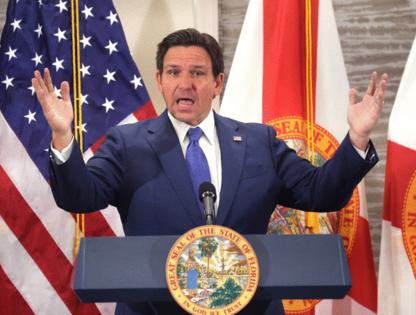DeSantis takes action on immigration without going after businesses
Published in Business News
TALLAHASSEE, Fla. — As Gov. Ron DeSantis and state lawmakers weighed how to respond to President Donald Trump’s immigration orders, they considered everything from mandatory death penalties for migrants who are in the country illegally to barring them from receiving in-state college tuition.
There’s one topic that was off the table, though: Going after the companies hiring them.
In bills passed by the Legislature and signed by DeSantis on Thursday, state lawmakers aren’t requiring more companies to screen workers through E-Verify, the federal database that confirms an employee’s citizenship status. They aren’t assigning more resources to enforce it and aren’t increasing penalties for companies who violate it.
Democrats seized on the omission this week, saying it runs counter to claims by DeSantis and Republican leaders that they were passing the “toughest” immigration laws in the nation.
“You’re not a serious person, politician or public servant if you are not recognizing, identifying and doing something about employment,” Sen. Jason Pizzo, D-Miami, said Wednesday.
“This is weak. Really, really, really weak,” he added.
Florida lawmakers long resisted imposing E-Verify requirements on businesses, who overwhelmingly fund their political campaigns.
That changed in 2020, when DeSantis pushed lawmakers to require all public employers, contractors and subcontractors to screen new employees through E-Verify. In 2023, lawmakers expanded the requirement to private employers with 25 or more employees.
But it captures less than 20% of Florida companies and can be circumvented by employers and employees.
It’s also far from the toughest in the nation.
Arizona, Mississippi and Alabama require all employers to screen workers. Georgia since 2013 has required all employers with 10 or more workers to screen them. (Employers in Georgia, with half the population of Florida, were the biggest users of E-Verify in 2023, according to the federal program.)
None of the 32 bills proposed by lawmakers or DeSantis over the last month have proposed expanding it to more businesses.
On Thursday, Pizzo filed an amendment to require all businesses to screen employees through E-Verify, but Republican senators ruled it “out of order” to avoid taking a vote on it.
“Three special sessions without a discussion of E-Verify is out of order,” Sen. Jennifer Bradley, R-Fleming Island, later posted on X.
DeSantis said Thursday that he supported expanding the requirements to all new employees in the upcoming legislative session, scheduled to begin March 4.
“When I proposed E-Verify originally, I wanted it for all employees,” he said.
Republican lawmakers this week said they would consider it.
In the meantime, some blamed DeSantis for not using the laws already on the books.
“We passed a bill about E-Verify. It hasn’t been particularly enforced,” said Sen. Randy Fine, R-Melbourne Beach.
Until two weeks ago, DeSantis’ administration had not taken any action against an employer for violating E-Verify requirements. The state also took no action against a state contractor after a Pinellas County sheriff’s deputy was killed by a man in the country illegally who was working for the company. (The worker and a colleague cleared E-Verify through out-of-state IDs.)
After Republican lawmakers started asking questions about the lack of enforcement last month, DeSantis’ administration issued warning letters to 40 companies.
The letters blamed the Legislature for not funding E-Verify enforcement, which lawmakers dispute.
The legislation signed Thursday — part of a deal between DeSantis and state legislative leaders — does not include any additional resources for enforcement. (The bills do enhance penalties for people in the country illegally who commit crimes.)
Nor does the legislation enhance penalties for companies that violate E-Verify provisions. Companies can avoid screenings by hiring workers as subcontractors, after those workers obtain a taxpayer ID number and establish a corporation or limited liability company.
Rep. Lawrence McClure, R-Dover, said lawmakers don’t know what steps to take with E-Verify because they currently have no data from DeSantis’ Department of Commerce to know how effective E-Verify is in the first place.
“If you’re not enforcing it, you can expand it until you’re blue in the face,” McClure said. “Start the evaluation process, get data and then adjust.”
_____
©2025 Tampa Bay Times. Visit tampabay.com. Distributed by Tribune Content Agency, LLC.












Comments